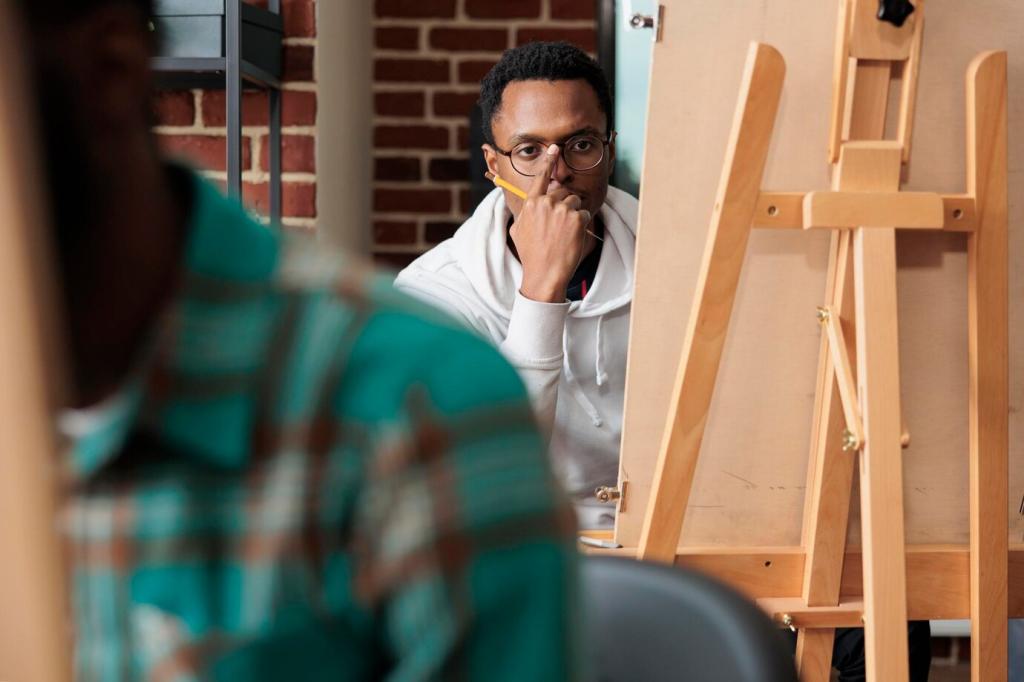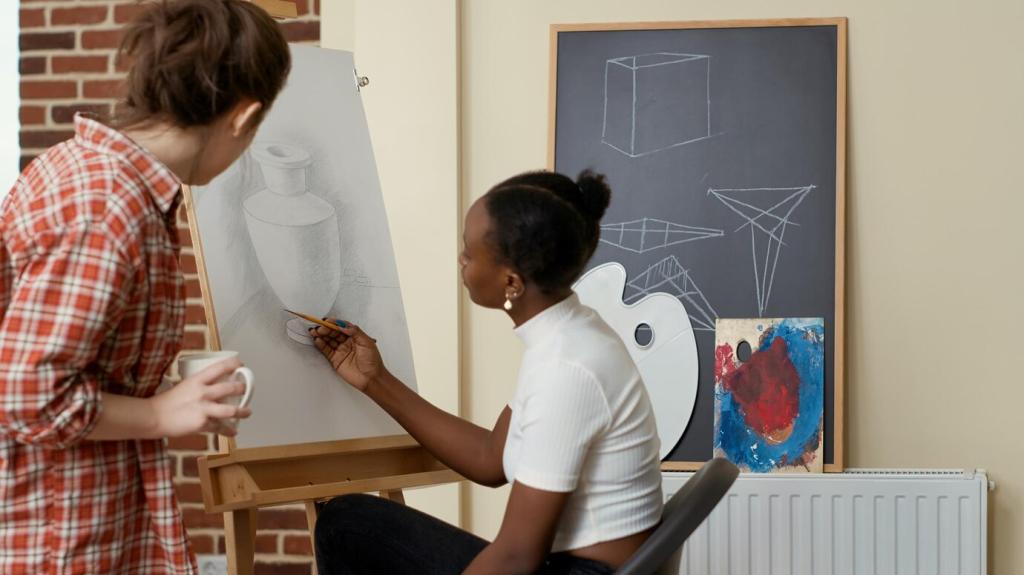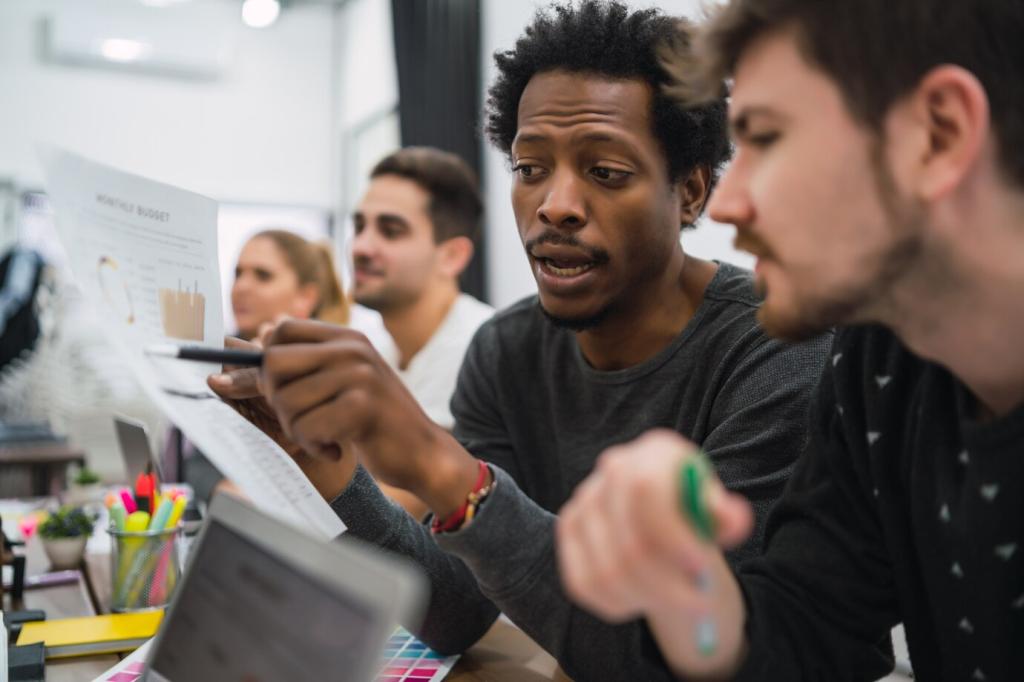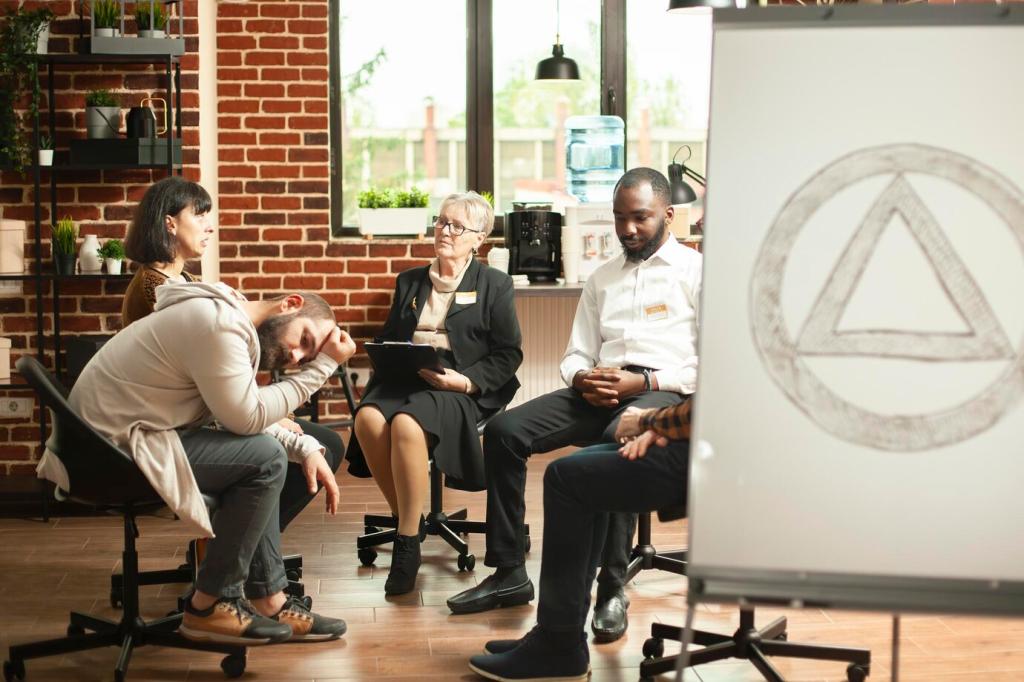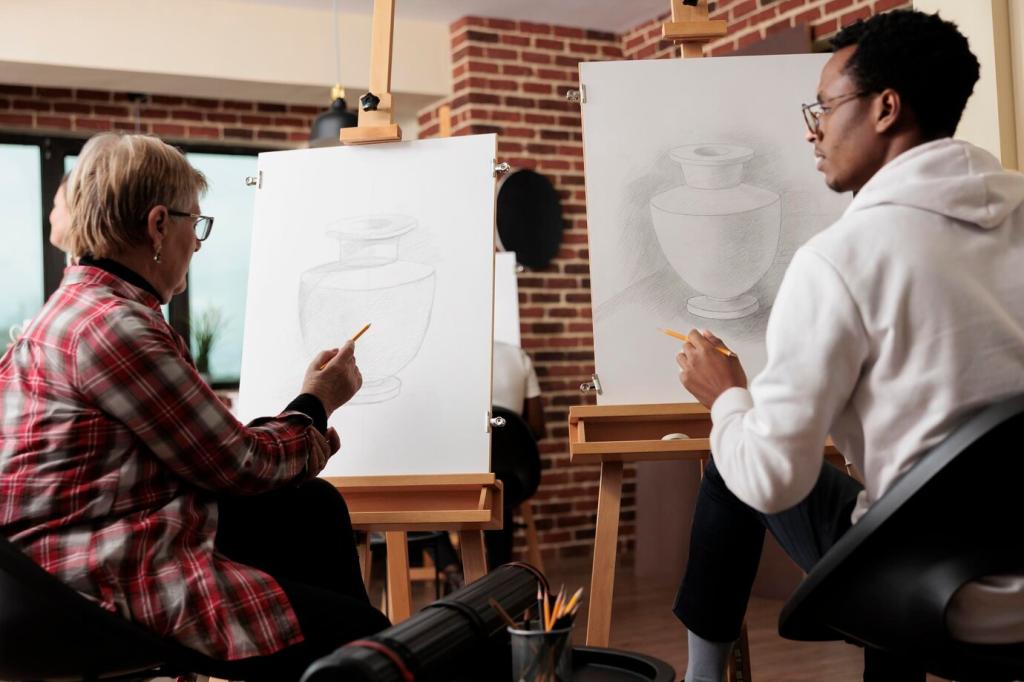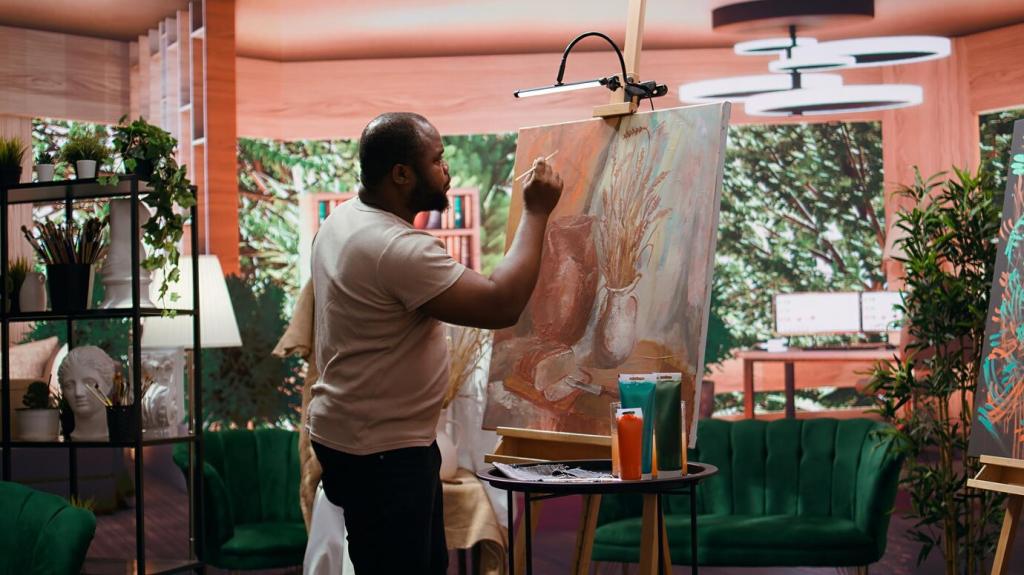Tools and Templates You Can Steal
Draw a grid of five prompts across and five constraints down. Fill intersections in five minutes. Twenty-five playful combinations later, patterns emerge. Keep three, ditch the rest. This speed forces decisions and leaves you with focused, testable directions before momentum fades.
Tools and Templates You Can Steal
Use a compact spine: Once there was…, Every day…, But one day…, Because of that…, Until finally…. In five lines, ideas gain direction, stakes, and shape. Teams align faster, prototypes speak clearer, and stakeholders grasp why this path matters now.
Tools and Templates You Can Steal
Print a monthly calendar with weekly prompts and micro-rewards. Monday: reframe a complaint. Wednesday: draw the problem. Friday: ship a tiny version. Check off boxes visibly. Progress becomes social, momentum accumulates, and your household or team cheers on consistent creative motion.
Tools and Templates You Can Steal
Lorem ipsum dolor sit amet, consectetur adipiscing elit. Ut elit tellus, luctus nec ullamcorper mattis, pulvinar dapibus leo.

